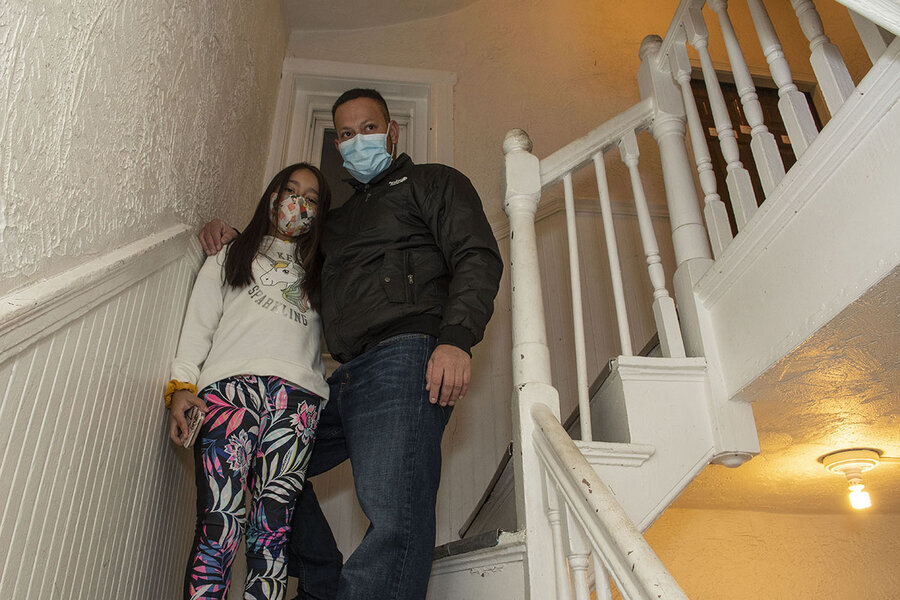
The pandemic has put “historic” pressure on renters in the United States. Here’s why it’s so important – to the economy, to health, and to people’s livelihood – to find a solution.
Jucosta Wilson of Walton, Kentucky, considers herself fortunate. Laid off in March, when pandemic-driven lockdowns caused unemployment to surge dramatically, she got rehired as a medical assistant at a dermatologist’s office three months later. But that gap in income, plus her husband’s loss of employment, caused the couple to miss some rent payments and their landlord wants them out.
“We’re being pushed into a situation that’s beyond our control. It’s not only hard to get out of that situation, but it’s even harder to survive in that situation,” says Ms. Wilson. The couple has a court date set for four days before Christmas.
In a gritty part of East Boston it’s only 5 p.m. and already dark, and raining. Nearly a dozen people brave the cold for a weekend rally at 168 Gove St., where the owner wants to evict his tenants – not because of nonpayment of rent but because he wants to develop condos.
The group, organized by a social justice organization, chants slogans and listens to short speeches in Spanish and English next to a big banner that reads: “Eviction Free Zone.”
Despite a nationwide moratorium ordered by the Centers for Disease Control and Prevention and a few remaining state and local restrictions, evictions are ticking up across the United States. If Congress does not approve emergency rental and other assistance before the end of the year, today’s trickle of displaced tenants will become a flood that would be unprecedented for its size and speed. It is particularly worrisome during the pandemic, where evidence is mounting that the housing exodus is spreading the virus.
Families are doubling up at times when medical professionals want them to socially distance. Shelters, overwhelmed even in normal times, are already pushing out some of their existing clients because state and local mandates are forcing them to reduce capacity.










